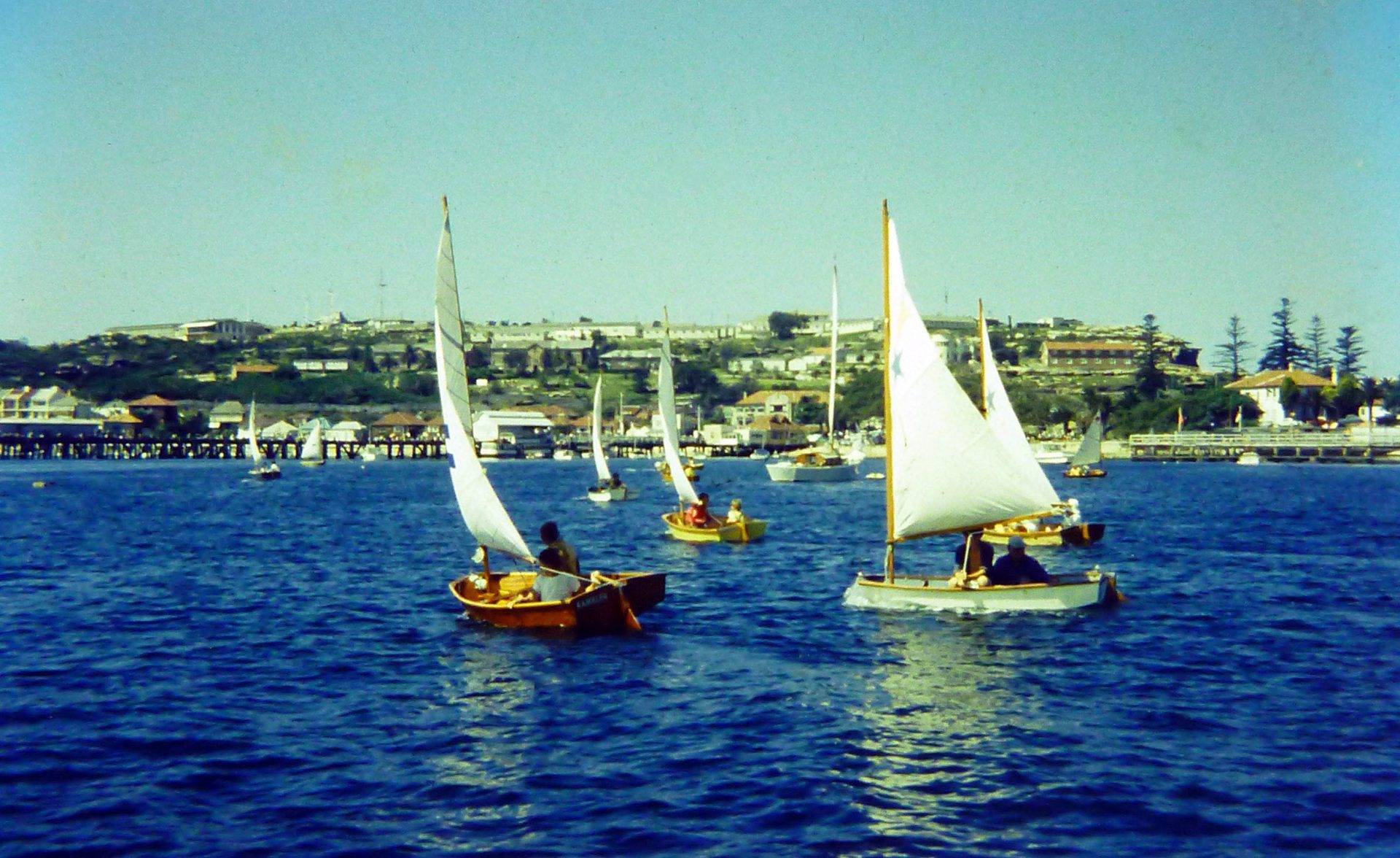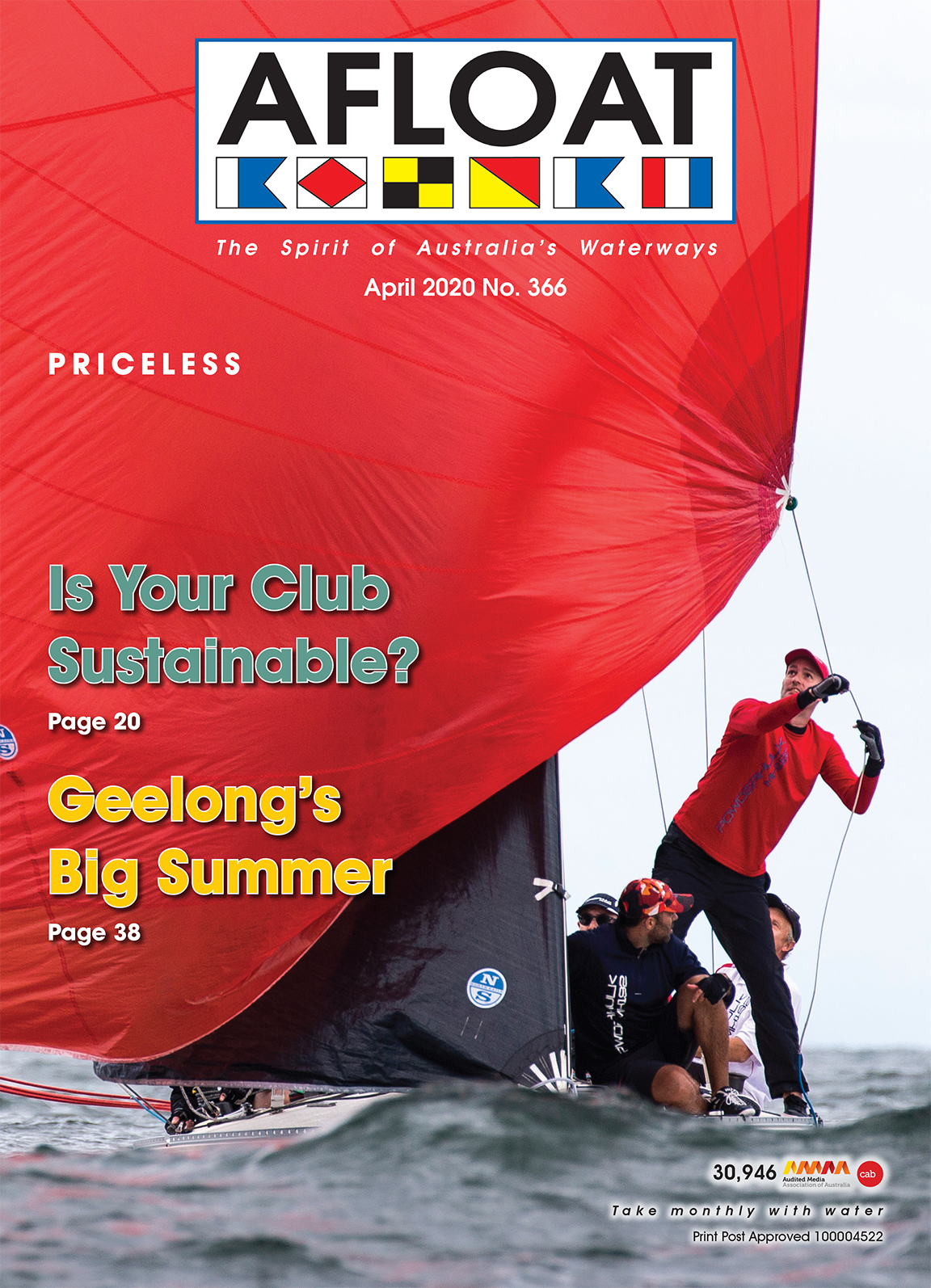The fourteen year old People-Smuggler

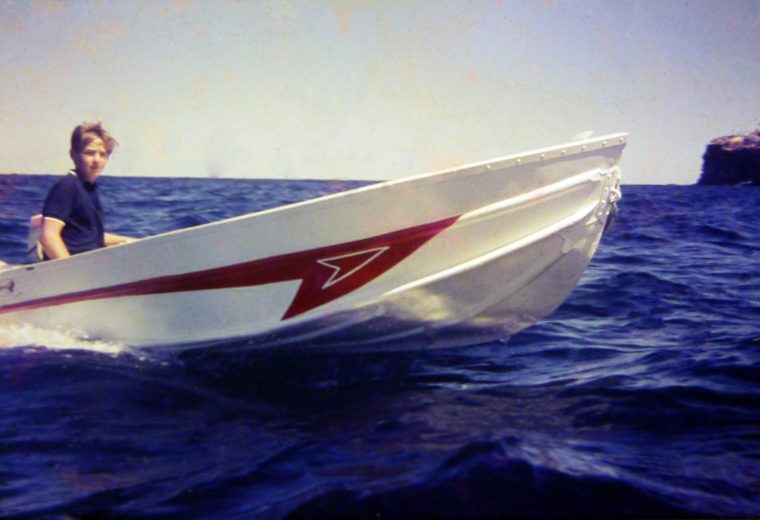
In 1965 I was spending most weekends out on the harbour in my 3.4 metre aluminium boat powered by a series of higher and higher horsepower outboards. Because they could go faster than ten knots I was supposed to have a licence but as I was only fourteen and needed to be seventeen to get one, I didn’t have one but that wasn’t reason enough not to drive it. A group of us were in the same boat, inasmuch as we each had a boat and were all too young to have a licence, so we kept an eye out for the Water Police and the Maritime Services Board officers who, if they had caught us, would have arrested and fined us. We were constantly vigilant but it never happened although our mate Paul Maine was once chased from the harbour bridge all the way back to the Royal Motor Yacht Club at Rose Bay, where we used to buy our petrol and hang. Boatman Laurie Castle, an on-side, all-round bestman when he wasn’t throwing us into the harbour, told Paul to hide under the big boatshed, built on piles and dark right down at the shore end. It was close, the MSB narks arrived and asked Laurie had he seen a boat for which they gave a detailed description. Nah, Laurie hadn’t seen him so they left and Paul got away with his underage speeding.
Aussie wharfies get a five finger discount
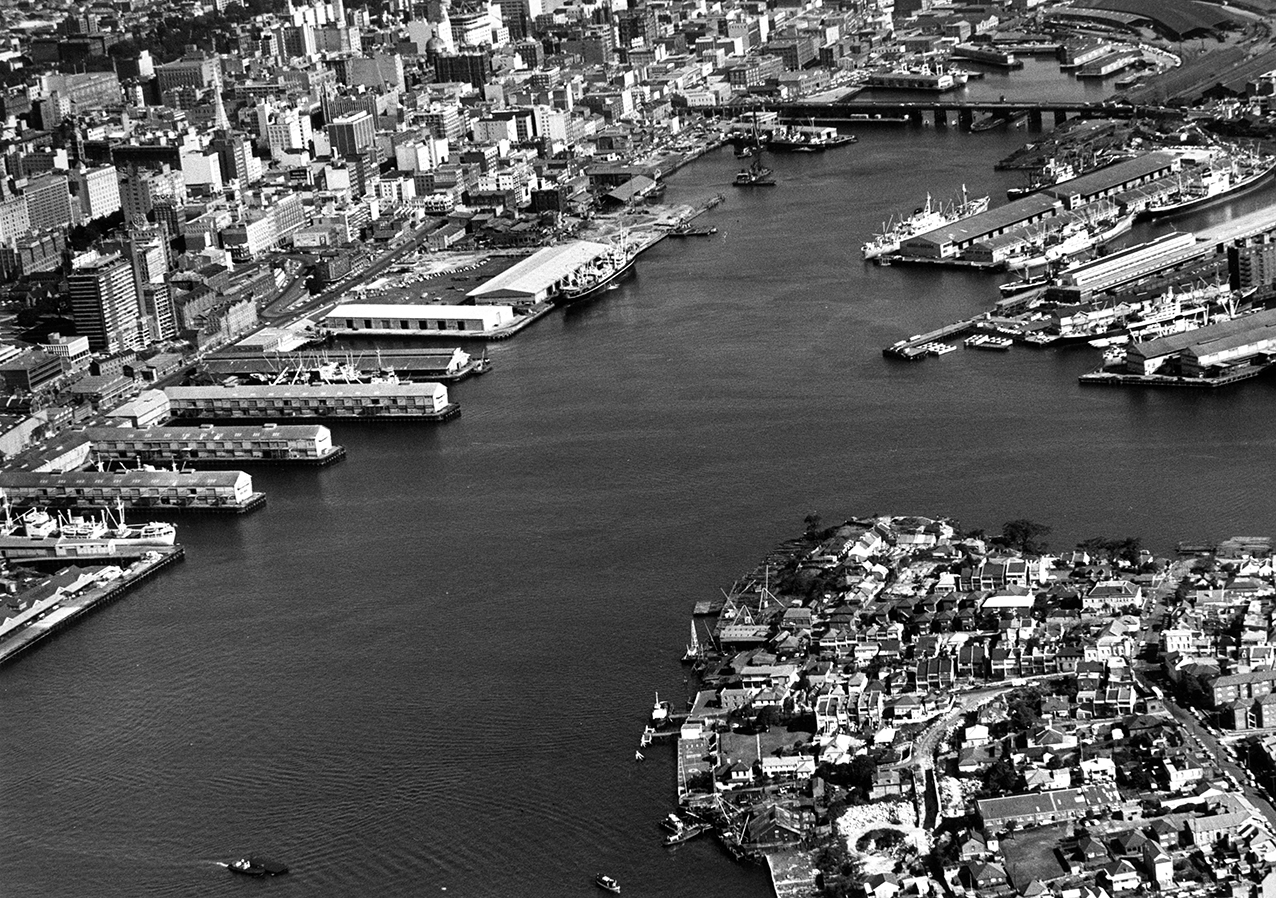
In those days container ships were yet to be introduced. Goods were shipped in the holds of cargo ships, loaded and unloaded laboriously by cranes and rope slings at old wooden wharves built right around the foreshores of Woolloomooloo, Walsh Bay, Darling Harbour and White Bay. These were the days of manual labourers on the wharves known as wharfies, who as a group were faced with a huge temptation to pilfer and take home whatever they felt like, as goods were dumped on the wharves sling by sling and taken into unsecured sheds to be collected by trucks delivering to loose-store depots. There was no security on the wharves except for the usual fat hairy-chested union member at the boom gate checking paperwork on the way out when he wasn’t asleep or at the pub drinking gallons of beer but he was a wharfie himself and naturally wasn’t inclined to accuse his fellow union-member truck driver mates of stealing something. The volume of goods that made it across the world only to disappear on Sydney’s wharves was impossible to calculate but unions would deny that now and take offence at the malicious slur. However, that Australian stevedores stole things was no secret, as a mainstream TV ad for Ajax abrasive bleach cleanser assumed. A filthy porcelain washing tub used by wharfies at the end of their shift to clean up was shown. It was black with years of built-up grime but soon rendered brightly white by the cleaning product. So clean was it that one impressed Wharfie says, ‘It’s a beauty! I’ll take it home!’ whereupon he rips the clean tub from the wall and walks off with it.
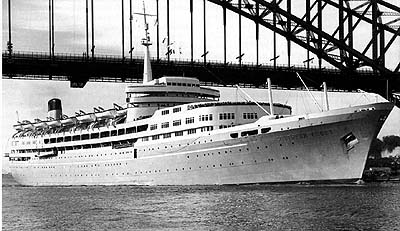
Sydney’s old wharves were also used by passenger ships arriving in high frequency. They weren’t the giant mass-market cruise ships three times bigger than the Titanic that we see today but modest relatively small ships a third the size of the Titanic, if that. Cruising has yet to be invented. Except for a very few English and American cruise ships for the upper-class and wealthy, most passenger ships were carting new immigrants from England, Italy and Greece. Occasionally early on a Saturday morning if I saw one of these migrant ships motoring past our place I would go up to Darling harbour in my boat and once the tugs had pushed the ship in to the wharf and departed, tie my boat to a ladder at one of the wharves. This was of course taking a huge chance that it wouldn’t be stolen, but it never was. It wasn’t hard to get onboard, blend-in and check things out for a taste of lower-class shipboard life in the days before mass air travel. My lasting impression on boarding the grey and green English immigrant ferry Southern Cross was passageways crowded with bags of dirty laundry and obedient queuing poms who hadn’t had time to wash or put on a clean shirt, waiting to disembark and start a new life in convict town.
Five Quid a head
In 1965 we could get away with anything and as a far as I can see life was better like that, at least from our perspective as bright, responsible teenagers. Because old-style general cargo ships took so long to load and unload, there were usually a number of them waiting on moorings around the harbour for wharf space to become vacant. Sometimes on the mooring right in front of our home at Altona a ship would be tied for weeks, swinging around and around the mooring with the tide. The crew would be itching to go ashore and have some fun and probably go to the natural history museum, or a library or even church but they weren’t allowed, either by the captain or Australian Customs & Immigration.
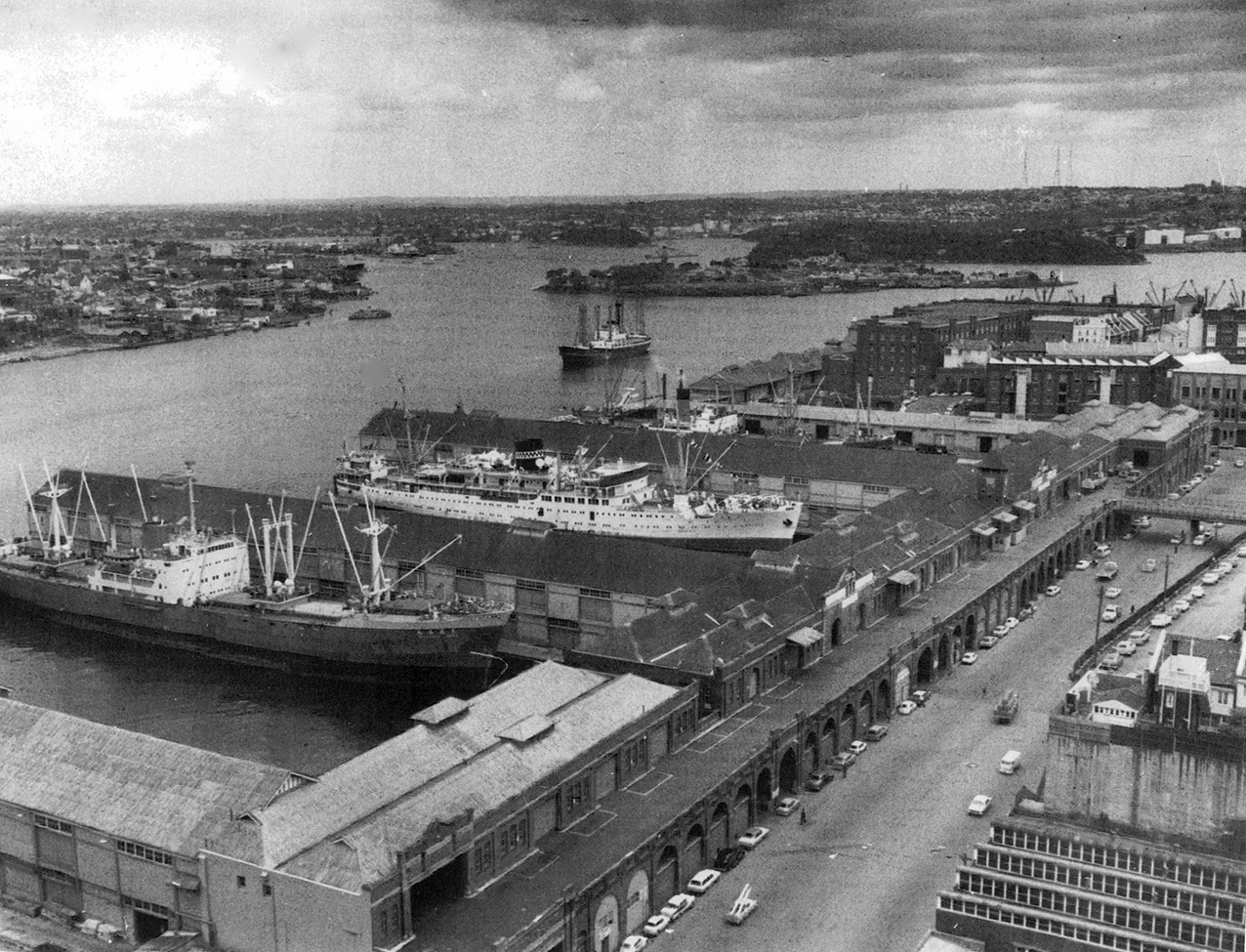
One Saturday afternoon I was cruising slowly around a ship on the mooring closest to us when a swarthy crew-member lowered the stepway and called me over. He indicated by vigorous animated sign language that he wanted me to take him and a few mates ashore. I negotiated a price of five pounds a head in those pre-decimal currency days, equal roughly to half a million dollars today. He signalled ‘OK’ in his own language and four of his excited mates clattered down the ladder, all showered and dressed up in ironed jeans, open-necked shirts and bomber jackets, hair slicked back and smelling of gallons of exotic foreign cologne. I collected the cash for their fare but gave them no ticket or receipt and took them into the Man O’War steps next to where the Opera House was being built. I indicated the routes they should take to the natural history museum and the main churches but not the libraries as I wasn’t sure that any of them could speak or read English and so the Australian literary classics Clancy Of The Overflow and The Magic Pudding would have been wasted on them. They must have been in a hurry to check out Australia’s furry animals, I supposed, as they ran off in the direction of the museum but it seemed that they had misunderstood my directions as they went no further than the nearest bus stop. I saw them jump on a 327 bus that would take them to Sydney’s red-light district of Kings Cross. They were in for a shock.
I went back to the ship and collected two more loads of five crew-members and duly ferried them ashore. I drew a map each time showing exactly where the museums and churches were so they wouldn’t make the same mistake. That was seventy five pounds for two hour’s work, costing me just four shillings in petrol, if that. After that, whenever I was passing a moored ship, I slowed down and kept an eye out for anyone waving at me. I did ferry a few more illegal passengers here and there but nothing again as lucrative as that splendour-in-the-grass first time experience as a people-smuggler on Sydney harbour.
The Japanese Navy comes to town
There were other bonanzas that stemmed from ships. At the end of 1965 a Japanese Navy Destroyer was visiting Sydney. I didn’t smoke but my mates did. We went alongside in the restricted Navy dockyard precinct of Garden Island and engaged in international trade and goodwill. It started when we struck up a conversation with a few sailors on deck. My mates had plenty of Australian cigarettes and gave them a couple of packs plus a couple of cans of Australian beer. Two of the sailors went below and came back with not only cartons of Japanese cigarettes but cases of Japanese Asahi beer, happily gifted to us, along with sailor hats and Japanese confectionary. We loaded up thanks to their generosity and left, without seeing or being shot at by any Australian Naval Security and wondering why our parents had been enemies of these delightful people just twenty years earlier.
Bounty from the wharf at Altona
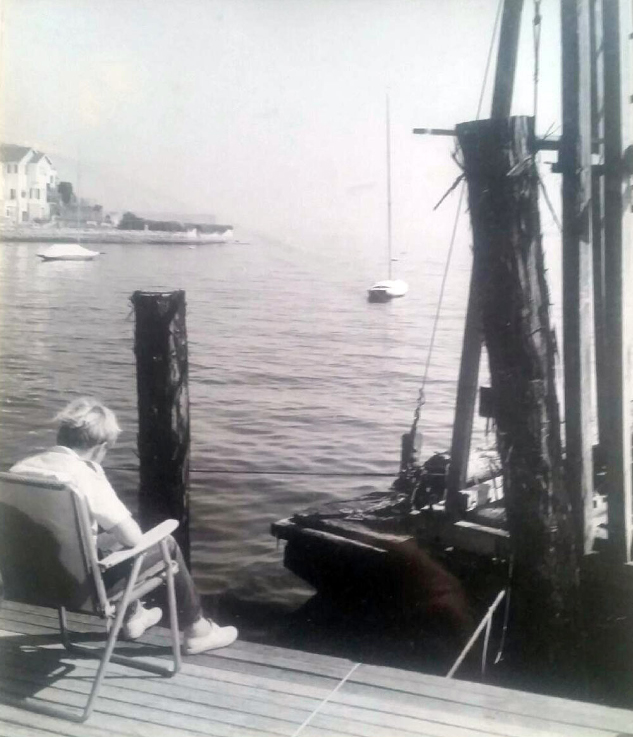
The wharf at Altona under construction. Brother David sold fish he’d caught from that wharf, supplemented on one lucky day with groceries washed from a barge loading food onto a ship moored to a buoy, hidden in fog at the top of the picture where ships often spent weeks waiting for a vacant wharf.
My younger brother David came home from school one day and noticed a commotion alongside a cargo ship that had been moored in front of our home for the past two weeks. There were police boats and some kind of rescue operation going on. Something had happened. One of Sydney’s wild westerly winds was blowing that day, straight into our place from the direction of the harbour bridge, washing up on our rocks scores of boxes of exotic plastic-wrapped pavlovas, something he had never seen before. There was more valuable flotsam and jetsam coming in behind the pavlovas on the waves … barely floating cans of Tarax lemonade and orange flavoured soft drink, hundreds and hundreds of them. There were watermelons too, and cabbages and other vegetables, and chocolates and citrus fruit, zucchinis, capsicums, potato chips and packets of Arnotts biscuits. David jumped in his dinghy and rowed out, battling the relentless waves like the heroine Grace Darling, to see if he could help. A barge loading food supplies onto the ship had overturned in the rough seas, dumping its load into the harbour. There was a steady stream of booty blowing in towards our place. He gathered as much as he could and rowed home with it, then made two more trips and then collected what had washed up on the shore. No one cared, no one came looking for it. It was a free windfall that kids his age dreamt about and wasn’t caught on anyone’s security camera.
David already had a nice little after-school business going, not everyday but whenever he felt like it he’d catch a few fish from our wharf, usually pulling in half a dozen leatherjackets, sometimes some yellowtail and occasionally a prize bream or blackfish if the octopus that lived under the wharf didn’t grab it off the line on the way up. David had regular customers up and down the street, mostly rich older ladies who would buy the fish for their cat and enjoy the visit. On this day he was able to add the drink cans and other booty to his inventory and made a killing.
Coming home from school on a Friday afternoon David noticed a team of girls in short orange dresses and T-shirts, letter-box dropping sample jars of TANG, a new product before it went to the moon. They dropped them in letter boxes, David removed them, following a safe distance behind. By the time he got home he had a hundred or more sample jars and went back for more. There were a lot of similar sample-product drops at that time. The word went around his mates when one was on and out came the pushbikes and baskets to harvest them. They had every street in Point Piper allocated to a collection agent. Same thing with sample tubes of Colgate toothpaste. David admitted his regret a few years ago, ‘I know now it was wrong and apologise unreservedly to both companies for any lost sales of fake orange juice and toothpaste and to residents of Point Piper for any tooth cavities that could have been avoided with proper brushing as a result of not receiving those product samples.’
Ocean Racers
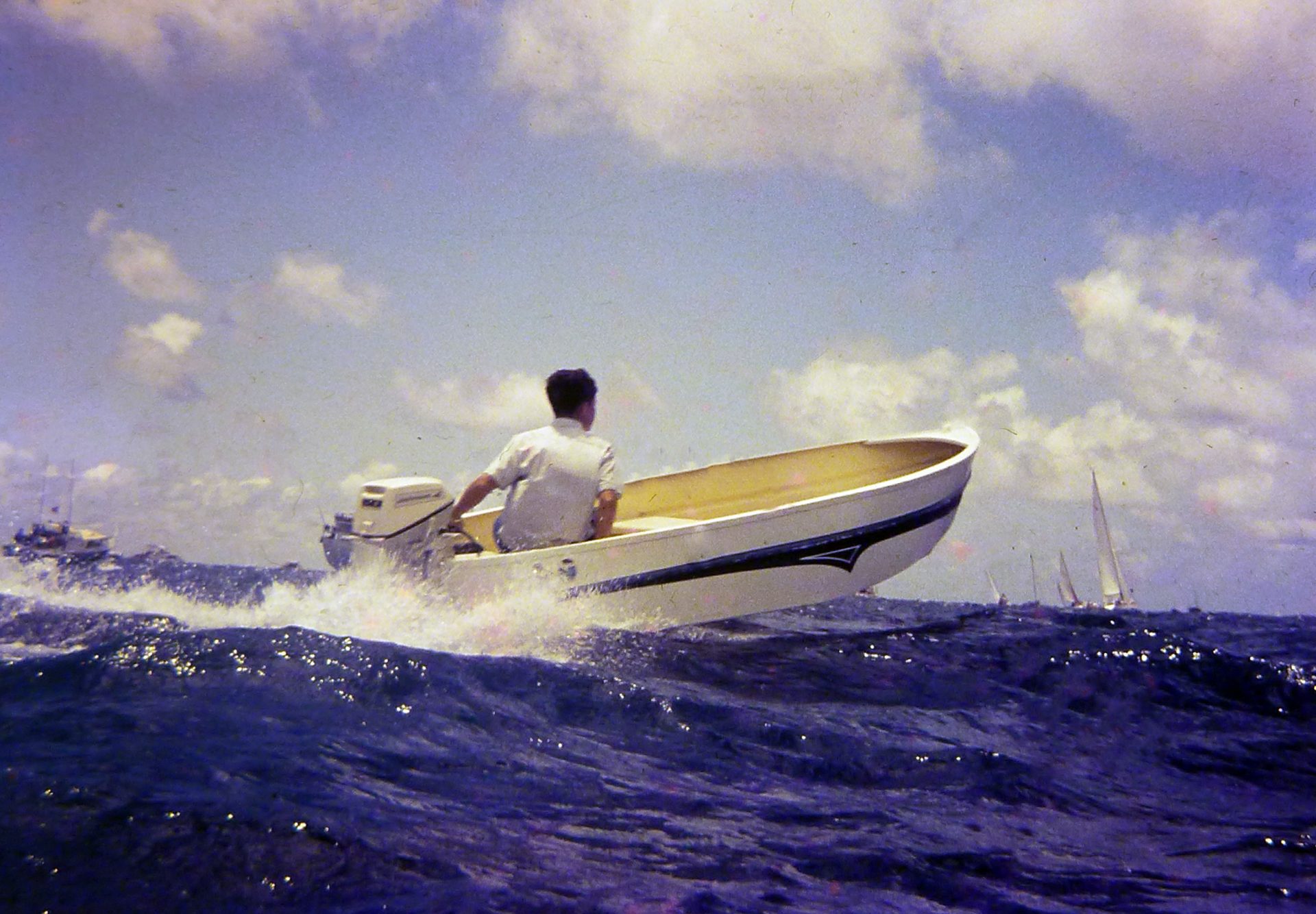
We did some crazy, dangerous things in our little outboard-powered speed machines on weekends, hard to believe now that we survived unscathed. If the weather was right and we were looking for something to do we’d go out past the heads into the open ocean and keep going east towards New Zealand until the three hundred foot high sandstone cliffs we had left behind were starting to sink below the horizon. We did this without telling our parents, without a mobile phone or two-way radio and without wearing a lifejacket. Luckily nothing bad ever happened and all of us who are still here remember those times as the happiest we can recall in those primitive outdoor pre-virtual-reality-computer-game days of our fleeting youth.
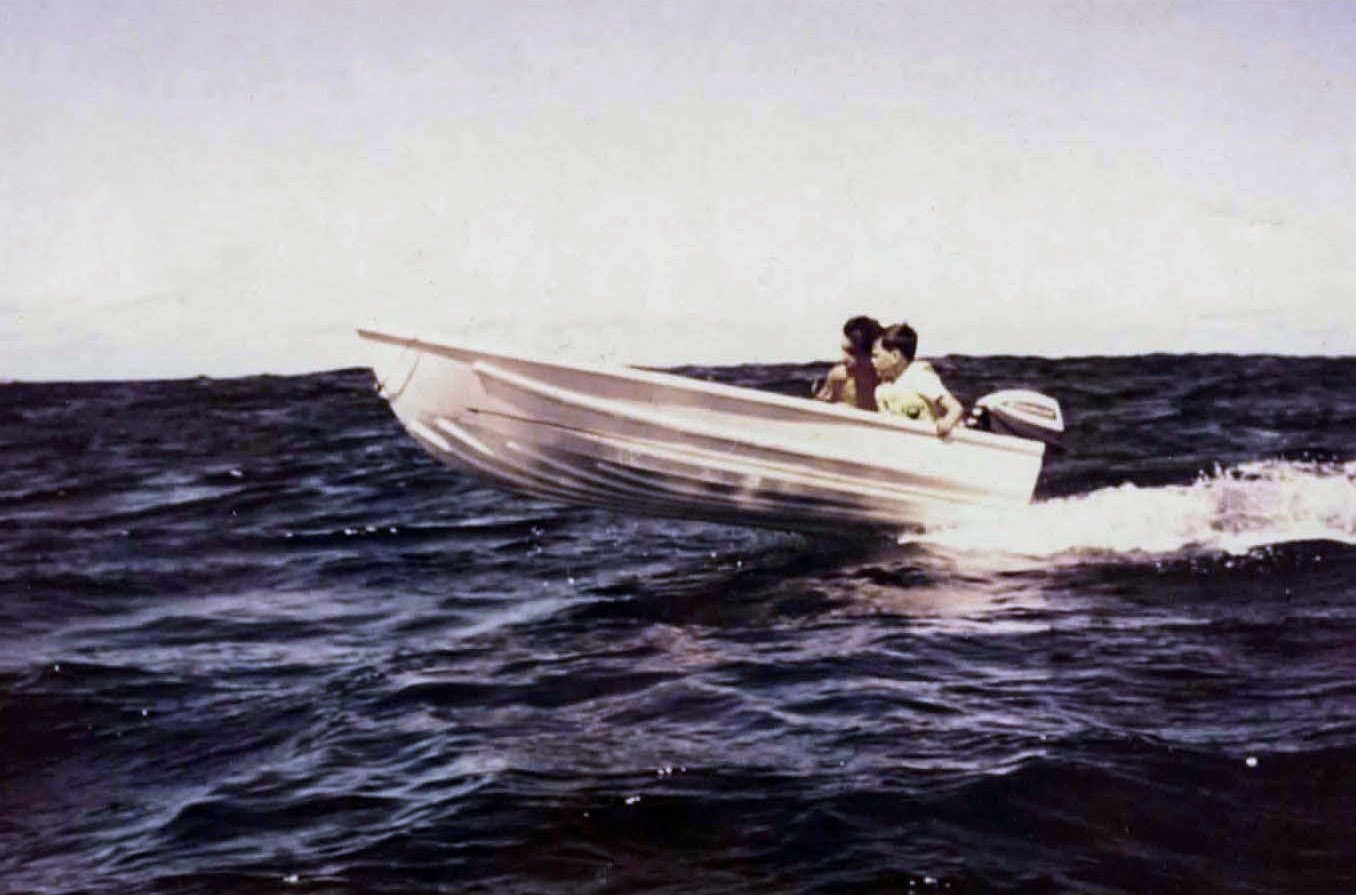
One dimension you can’t yet get in a virtual-reality game is smell. I awoke one morning in the poolhouse to the overpowering stink of fish. A Soviet whaling mother ship had crept in overnight and tied up to that closest mooring with severe-sounding Russian commands on the ship’s loudspeakers coming across the water loud and clear but unintelligible. I could see up through the blood and blubber stained ramp in its stern to the factory area inside the ship where the slicing up was done. There was room enough for four big humpbacks, or one rare giant blue whale, I guessed. I rowed out to it for a closer look, hoping to talk to some crew and maybe get an invite on board but there was a clear lack of friendliness. I was observed by unsmiling armed supervisors and waved away. Whaling appeared to be a serious business in the USSR. I wondered where they were getting their whales and why they had come so far South from Vladivostok, but that was another Soviet secret as far as I could see.
Our weekends were never idle and always fun if I remember correctly. We stayed out on the water as long as we could on Sunday afternoons, coming in only when it was getting dark to hose down and put the boats away, watch Flipper on TV and then because we could put it off no longer, do any homework due the next day.
Gary Jackson
